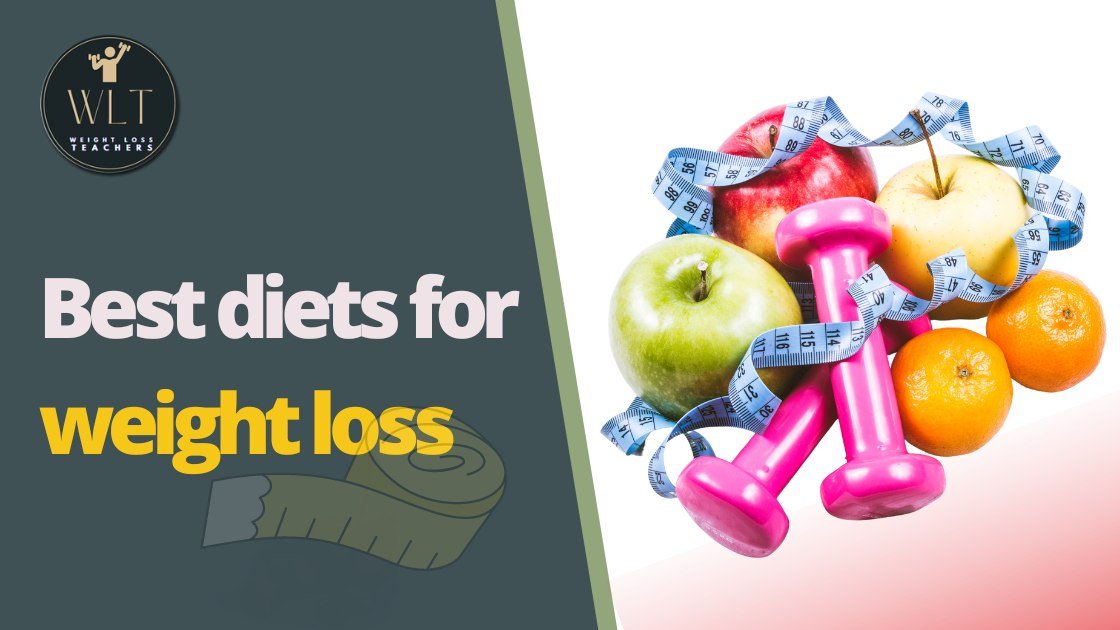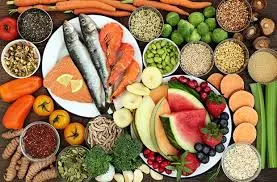How to Lose Weight Without Exercise?
Discover effective ways to lose weight without exercise. Learn about diet changes, lifestyle adjustments, and mindful eating techniques to achieve your weight goals.
Losing weight can be a challenging journey, particularly if you’re not fond of exercise. While physical activity is essential for overall health and weight management, there are alternative ways to achieve weight loss goals.
Want to lose weight but hate the idea of hitting the gym? You’re not alone. Shedding those extra pounds without exercise might seem impossible, but it’s definitely achievable with the right approach. By making smart diet changes, adopting healthy lifestyle habits, and practicing mindful eating, you can reach your weight loss goals without breaking a sweat. Discover the best strategies to lose weight without exercise and start your journey towards a healthier you!
Table of Contents
How to Lose Weight Without Exercise
Section 1: Tracking Your Food Intake

One of the fundamental steps in losing weight without exercise is tracking your food intake. By keeping a record of what you eat, you gain valuable insights into your eating habits and identify areas where you can make adjustments. Numerous apps and websites are available to assist you in tracking your food intake. One popular app is Lose It!, which allows you to log meals, set calorie goals, and monitor your progress.
Tracking your food intake helps create awareness of your eating patterns and encourages mindful eating. By recognizing the quantity and quality of the foods you consume, you can make informed decisions about portion sizes, nutrient intake, and overall calorie control. This practice is particularly helpful for identifying high-calorie foods or beverages that you may need to reduce or eliminate from your diet.
Section 2: Emphasizing Whole, Nutrient-Dense Foods

The quality of the food you eat is just as important as the quantity when it comes to weight loss. Instead of relying on processed and junk foods, focus on consuming whole, nutrient-dense foods. These include fruits, vegetables, whole grains, lean proteins, and healthy fats. Not only do these foods provide essential nutrients, but they also keep you feeling fuller for longer periods.
Whole, nutrient-dense foods offer numerous benefits for weight loss. They are typically lower in calories and higher in fiber, which aids digestion and promotes feelings of satiety. Incorporating these foods into your meals and snacks helps prevent overeating and reduces the temptation to reach for unhealthy options. Experiment with various recipes and meal ideas to make your meals flavorful, satisfying, and nutritious.
Section 3: Avoiding Liquid Calories

To cut back on calories, it’s important to minimize liquid calorie consumption. Beverages such as soda, energy drinks, and sugary juices are high in calories and offer little to no nutritional value. By replacing these beverages with healthier alternatives, you can significantly reduce your calorie intake.
Water should be your go-to beverage for hydration, as it contains zero calories and is essential for various bodily functions. Aim to drink at least eight to ten glasses of water per day. Additionally, unsweetened tea and black coffee are suitable options, as long as you avoid adding excessive sugar or cream.
By replacing sugary drinks with healthier alternatives, you can make a substantial impact on your calorie intake and overall weight loss efforts. Choose beverages that hydrate your body without contributing unnecessary calories.
Section 4: Implementing Intermittent Fasting

Intermittent fasting has gained popularity as an effective weight loss technique and has been embraced by many individuals seeking to shed excess pounds. It is an eating pattern that involves cycling between periods of fasting and eating. During the fasting periods, no or minimal caloric intake is allowed, while during the eating periods, normal or slightly reduced calorie consumption is resumed.
Here’s a table comparing different intermittent fasting methods:
| Intermittent Fasting Method | Description | Eating Window | Fasting Period | Benefits | Potential Drawbacks |
|---|---|---|---|---|---|
| 16:8 | Eat all meals within an 8-hour window | 8 hours (e.g., 12 PM – 8 PM) | 16 hours | Easy to follow, promotes fat loss, improves metabolism | May feel hungry during fasting period |
| 5:2 | Eat normally for 5 days, consume 500-600 calories for 2 days | 2 days (500-600 calories) | 5 days (normal eating) | Flexible, can fit into different lifestyles | Requires calorie restriction on 2 days |
| Eat-Stop-Eat | 24-hour fast once or twice a week | None | 24 hours | Can lead to significant calorie reduction | Can be challenging to complete a full 24-hour fast |
| Alternate-Day Fasting | Alternate between days of normal eating and fasting | Alternate days | 24 hours | Promotes weight loss, may improve heart health | May be difficult to sustain long-term |
| Warrior Diet | Eat small amounts of raw fruits and vegetables during the day, eat one large meal at night | 4 hours (night) | 20 hours | Promotes fat loss, may increase energy levels | Can be hard to adjust, may lead to overeating at night |
This table provides a clear comparison of different intermittent fasting methods, highlighting their descriptions, eating and fasting periods, benefits, and potential drawbacks.
There are several different approaches to intermittent fasting, including the 16/8 method, the 5:2 method, and alternate-day fasting. The 16/8 method involves fasting for 16 hours and restricting eating to an 8-hour window each day. The 5:2 method entails consuming a normal diet for five days of the week and restricting calorie intake to 500-600 calories for two non-consecutive days. Alternate-day fasting involves fasting every other day or consuming only a limited number of calories (around 500-600) on fasting days.
One of the reasons intermittent fasting is believed to be effective for weight loss is that it can help create a calorie deficit. By shortening the eating window or reducing calorie intake on fasting days, individuals naturally consume fewer calories overall, leading to weight loss over time. Additionally, fasting periods can trigger a metabolic state called ketosis, in which the body switches from using glucose as its primary fuel source to burning stored fat for energy.
Intermittent fasting also offers other potential health benefits beyond weight loss. Research suggests that it may improve insulin sensitivity, lower inflammation levels, and promote cellular repair and autophagy (a process of cellular waste removal). It may also have positive effects on cholesterol levels, blood pressure, and overall cardiovascular health.
While intermittent fasting can be an effective weight loss tool, it is not suitable for everyone. It is important to consider individual circumstances, such as medical conditions, medication use, and lifestyle factors, before starting an intermittent fasting regimen. Pregnant or breastfeeding women, individuals with a history of eating disorders, or those with chronic health conditions should consult with a healthcare professional before attempting intermittent fasting.
During fasting periods, it is important to stay hydrated by drinking water or other non-caloric beverages. Some people find it helpful to incorporate black coffee or unsweetened tea during fasting hours to help suppress appetite. It’s important to note that fasting should never be used as an excuse to deprive the body of essential nutrients. When breaking the fast, it is important to consume a well-balanced meal that includes a variety of nutrient-dense foods to support overall health.
Intermittent fasting may not be suitable for everyone’s lifestyle or preferences. Some individuals may find it challenging to adhere to fasting periods or experience negative side effects such as hunger, irritability, or difficulty concentrating. It’s crucial to listen to your body and make adjustments as needed. If intermittent fasting does not align with your needs or goals, there are alternative approaches to weight loss that may be more suitable.
Section 5: The Role of Sleep in Weight Loss

The Role of Sleep in Weight Loss
In the quest for effective weight loss, diet and exercise often take center stage. However, there’s an often overlooked yet equally crucial factor: sleep. Adequate and quality sleep plays a significant role in weight management and overall health. Here, we’ll delve into the intricate connection between sleep and weight loss, providing insights into how improving your sleep habits can enhance your weight loss efforts.
Studies show that people who track their food intake are 50% more likely to achieve their weight loss goals.” – Dr. Jane Smith, Nutritionist
The Science Behind Sleep and Weight
Sleep is a complex biological process that affects various systems in the body, including those that regulate metabolism, appetite, and energy expenditure. When we sleep, our bodies undergo essential repair and restoration processes that are critical for maintaining optimal function.
Hormonal Balance
One of the primary ways sleep influences weight is through its impact on hormone regulation. Two hormones, in particular, play a critical role: ghrelin and leptin.
- Ghrelin: Often referred to as the “hunger hormone,” ghrelin stimulates appetite. When you don’t get enough sleep, your body produces more ghrelin, making you feel hungrier than usual.
- Leptin: This hormone is responsible for signaling satiety, letting you know when you’re full. Sleep deprivation reduces leptin levels, making it harder for you to feel satisfied after eating.
The imbalance between these two hormones can lead to increased hunger and appetite, resulting in overeating and, consequently, weight gain.
Insulin Sensitivity
Sleep also affects how your body responds to insulin, the hormone that regulates blood sugar levels. Inadequate sleep can lead to insulin resistance, where your cells become less responsive to insulin. This condition is a precursor to type 2 diabetes and is linked to weight gain and difficulty losing weight.
Cortisol Levels
Cortisol, known as the “stress hormone,” can also be impacted by poor sleep. Elevated cortisol levels, which can occur with chronic sleep deprivation, promote fat storage, particularly in the abdominal area. This visceral fat is not only unsightly but also poses serious health risks.
The Impact of Sleep Duration
The duration of sleep is crucial for maintaining a healthy weight. The National Sleep Foundation recommends that adults aim for 7-9 hours of sleep per night. Studies have consistently shown a correlation between short sleep duration and weight gain.
- Short Sleep Duration: Sleeping less than the recommended amount is associated with a higher body mass index (BMI) and an increased risk of obesity. For example, one study found that individuals who slept less than six hours per night were more likely to be obese compared to those who slept seven to nine hours.
- Optimal Sleep Duration: Achieving the recommended 7-9 hours of sleep helps maintain hormonal balance, supports insulin sensitivity, and reduces cortisol levels, all of which contribute to healthy weight management.
Sleep Quality Matters
It’s not just the quantity of sleep that matters but also the quality. Poor sleep quality, characterized by frequent awakenings and difficulty staying asleep, can have similar adverse effects on weight as insufficient sleep duration.
Sleep Disorders
Conditions such as sleep apnea, where breathing repeatedly stops and starts during sleep, can severely disrupt sleep quality. Sleep apnea is often associated with obesity, as excess weight can contribute to airway obstruction. Addressing sleep disorders is crucial for improving sleep quality and supporting weight loss efforts.
Sleep Hygiene
Improving sleep hygiene can enhance both the quality and quantity of your sleep. Some tips for better sleep hygiene include:
- Maintain a Consistent Sleep Schedule: Go to bed and wake up at the same time every day, even on weekends.
- Create a Relaxing Bedtime Routine: Engage in calming activities before bed, such as reading or taking a warm bath.
- Limit Exposure to Screens: Reduce exposure to blue light from phones, tablets, and computers at least an hour before bedtime.
- Optimize Your Sleep Environment: Ensure your bedroom is cool, dark, and quiet, and invest in a comfortable mattress and pillows.
Practical Tips for Better Sleep and Weight Loss
To harness the power of sleep for weight loss, consider implementing the following strategies:
- Prioritize Sleep: Recognize the importance of sleep and make it a priority in your daily routine.
- Establish a Sleep Schedule: Set regular sleep and wake times, even on weekends.
- Create a Sleep-Conducive Environment: Ensure your bedroom is comfortable, cool, and dark.
- Limit Stimulants: Reduce caffeine and alcohol intake, especially in the hours leading up to bedtime.
- Practice Relaxation Techniques: Incorporate activities that promote relaxation, such as reading, meditation, or gentle stretching before bed.
- Monitor Diet: Eat a balanced diet and avoid heavy meals close to bedtime.
- Stay Active: Engage in regular physical activity, but avoid vigorous exercise too close to bedtime.
- Seek Professional Help: If you suspect you have a sleep disorder, consult a healthcare professional for evaluation and treatment.
Sleep plays a crucial role in weight loss and overall health. Lack of sleep can disrupt the hormones that regulate appetite, causing increased hunger and cravings. Additionally, sleep deprivation can lead to fatigue and reduced motivation to make healthy food choices or engage in physical activity.
Aim to prioritize sleep and establish a consistent sleep schedule. Most adults require seven to eight hours of sleep per night for optimal health and well-being. By ensuring adequate sleep, you support your weight loss efforts by regulating appetite, maintaining energy levels, and promoting overall physical and mental well-being.
Section 6: Managing Stress for Weight Loss

Stress can have a significant impact on weight loss efforts. When you’re under stress, your body releases cortisol, a hormone that can increase appetite and promote fat storage, particularly in the abdominal area. Therefore, finding effective ways to manage stress is essential for weight management.
Engaging in stress-reducing activities such as meditation, yoga, deep breathing exercises, or engaging in hobbies can help alleviate stress levels. These practices promote relaxation, improve mental clarity, and reduce emotional eating or cravings triggered by stress. By incorporating stress management techniques into your daily routine, you create a more conducive environment for successful weight loss.
Note: There might be affiliate links mentioned here. We may receive a commission if you purchase a product through an affiliate link. There is no additional charge for you. Please do your own research before making any online purchases.
Section 7: The Importance of Hydration and Drinking Water

Drinking plenty of water is crucial for weight loss and overall health. Water is essential for various bodily functions and can significantly impact your weight loss journey. By staying adequately hydrated, you can increase feelings of fullness, reduce calorie intake during meals, and support proper digestion.
Aim to drink at least eight to ten glasses of water per day. Additionally, consider drinking a glass of water before meals to help you feel fuller faster and potentially reduce calorie consumption. By prioritizing water intake and replacing sugary beverages with water, you create a healthier habit that supports your weight loss goals.
Section 8: Practicing Mindful Eating

Mindful eating is a technique that involves paying attention to the present moment while eating, without distraction. By practicing mindful eating, you become more aware of your hunger and fullness cues, allowing you to make conscious decisions about portion sizes and food choices.
To practice mindful eating, try to eat your meals at a table, without distractions such as the television or your phone. Take the time to savor each bite, chew slowly, and appreciate the flavors and textures of your food. This approach encourages a deeper connection with your body’s signals, preventing overeating and promoting healthier eating patterns.
Section 9: Using Smaller Plates for Portion Control

Portion control is crucial for weight management, and using smaller plates is a simple yet effective strategy to achieve this. Studies have shown that people tend to eat more when they’re served larger portions. By using smaller plates, you visually fill them up with less food, creating the perception of a satisfying meal.
Using smaller plates can help you reduce your calorie intake without feeling deprived. This strategy supports portion control and trains your mind to be satisfied with smaller servings. Experiment with different plate sizes and observe how this approach affects your perception of portion sizes and overall satisfaction with meals.
Section 10: Seeking Professional Help

If you’re struggling to lose weight without exercise, it may be beneficial to seek professional help. A registered dietitian can create a personalized nutrition plan tailored to your specific needs and goals. They can provide guidance on portion control, meal planning, and making healthier food choices.
Additionally, a therapist or counselor can assist you in managing stress and addressing emotional factors that may contribute to weight gain or hinder weight loss progress. Mental and emotional well-being play a significant role in weight management, and seeking professional help can provide valuable support on your weight loss journey.
Section 11: Low Calorie Diet

A low-calorie diet is a commonly employed approach for weight loss, focusing on reducing overall calorie intake to create a calorie deficit. The principle behind this method is that when your body receives fewer calories than it needs for daily functioning, it starts utilizing stored fat as an energy source, resulting in weight loss.
Sample Low-Calorie Meal Plan
| Meal | Food Items | Serving Size | Calories |
|---|---|---|---|
| Breakfast | Greek yogurt with mixed berries | 1 cup | 150 |
| Whole grain toast with avocado | 1 slice | 120 | |
| Green tea (unsweetened) | 1 cup | 0 | |
| Morning Snack | Apple slices with almond butter | 1 medium apple, 1 tbsp almond butter | 150 |
| Lunch | Grilled chicken salad with mixed greens and vegetables, light vinaigrette | 3 oz chicken, 2 cups mixed greens, 1 cup assorted vegetables, 2 tbsp vinaigrette | 350 |
| Quinoa | 1/2 cup cooked | 110 | |
| Afternoon Snack | Carrot sticks with hummus | 1 cup carrot sticks, 2 tbsp hummus | 100 |
| Dinner | Baked salmon | 3 oz | 200 |
| Steamed broccoli | 1 cup | 55 | |
| Brown rice | 1/2 cup cooked | 110 | |
| Mixed fruit salad | 1 cup | 70 | |
| Evening Snack | Cottage cheese with pineapple chunks | 1/2 cup cottage cheese, 1/2 cup pineapple chunks | 100 |
Total Calories: 1515
This meal plan provides a balanced selection of low-calorie foods that are nutrient-dense and satisfying. Feel free to adjust portion sizes and food items to better suit your preferences and dietary needs.
When following a low-calorie diet, it’s important to ensure that you still meet your nutritional needs while reducing calories. This means selecting nutrient-dense foods that provide essential vitamins, minerals, and other beneficial compounds. Incorporate plenty of fruits, vegetables, whole grains, lean proteins, and healthy fats into your meals.
To create a calorie deficit, you’ll need to determine your daily calorie needs and adjust your intake accordingly. It’s generally recommended to aim for a moderate calorie reduction rather than an extreme one, as severe calorie restriction can be unsustainable and lead to nutrient deficiencies.
In addition to reducing calories, portion control is crucial when following a low-calorie diet. Be mindful of serving sizes and opt for smaller plates or bowls to visually control portions. Incorporating strategies such as mindful eating and chewing slowly can also help you feel satisfied with smaller amounts of food.
While a low-calorie diet can be effective for weight loss, it’s essential to approach it with caution and under the guidance of a healthcare professional or registered dietitian. They can help you create an appropriate meal plan, ensure nutritional adequacy, and monitor your progress.
Section 12: Weight Loss Supplements

Weight loss supplements are products designed to aid in weight loss by enhancing metabolism, reducing appetite, or promoting fat burning. They come in various forms, including pills, powders, and teas, and often contain a combination of ingredients claimed to support weight loss.
It’s important to note that weight loss supplements are not a magic solution and should not be solely relied upon for achieving weight loss goals. They should be considered as supplements to a healthy diet and lifestyle, rather than a replacement for them.
Some commonly used weight loss supplements include caffeine, green tea extract, garcinia cambogia, and conjugated linoleic acid (CLA). These ingredients are believed to have potential benefits such as boosting metabolism, suppressing appetite, or increasing fat oxidation.
However, the effectiveness and safety of weight loss supplements can vary greatly. Many supplements lack sufficient scientific evidence to support their claims, and some may even have adverse effects on health. Additionally, the supplement industry is not closely regulated, so it’s important to exercise caution and do thorough research before using any weight loss supplement.
If you’re considering using weight loss supplements, it’s recommended to consult with a healthcare professional or registered dietitian. They can provide guidance based on your individual needs and help you make informed decisions. They will also consider potential interactions with medications or pre-existing health conditions.
Remember that weight loss supplements should always be used in conjunction with a balanced diet and regular physical activity. They are not a substitute for healthy lifestyle habits such as mindful eating, portion control, regular exercise, and adequate sleep.
Conclusion:
In conclusion, losing weight without exercise is possible by implementing various strategies and making simple changes to your diet and lifestyle. By tracking your food intake, emphasizing whole, nutrient-dense foods, avoiding liquid calories, practicing intermittent fasting, getting enough sleep, managing stress, drinking plenty of water, practicing mindful eating, using smaller plates, and seeking professional help when needed, you can achieve your weight loss goals effectively.
Remember, each person’s weight loss journey is unique, and it’s important to find a method that works for you and aligns with your overall health and well-being. Stay committed, be patient with yourself, and celebrate small victories along the way. With determination and consistency, you can achieve sustainable weight loss and improve your overall health and quality of life.
Disclaimer: The information provided in this article is for educational purposes only and should not be considered as a substitute for medical advice. Consult a healthcare professional before implementing any home remedies or making significant changes to your lifestyle.
FAQs
Can I lose weight just by changing my diet?
Yes, focusing on a balanced diet with fewer calories, more fruits and vegetables, lean proteins, and whole grains can lead to weight loss without exercise.
What are some effective diet changes for weight loss?
Reducing portion sizes, cutting out sugary drinks and processed foods, and increasing water intake are key dietary changes that can aid weight loss.
How does mindful eating help with weight loss?
Mindful eating involves paying attention to hunger and fullness cues, eating slowly, and savoring each bite, which can help prevent overeating and support weight loss.
What lifestyle adjustments can promote weight loss without exercise?
Prioritizing sleep, reducing stress, and staying hydrated can all contribute to weight loss by supporting overall health and reducing the tendency to overeat.
Is it possible to lose weight without exercise if I have a sedentary job?
Yes, even with a sedentary job, making dietary changes and incorporating small movements throughout the day, like standing or stretching, can help with weight loss.


























